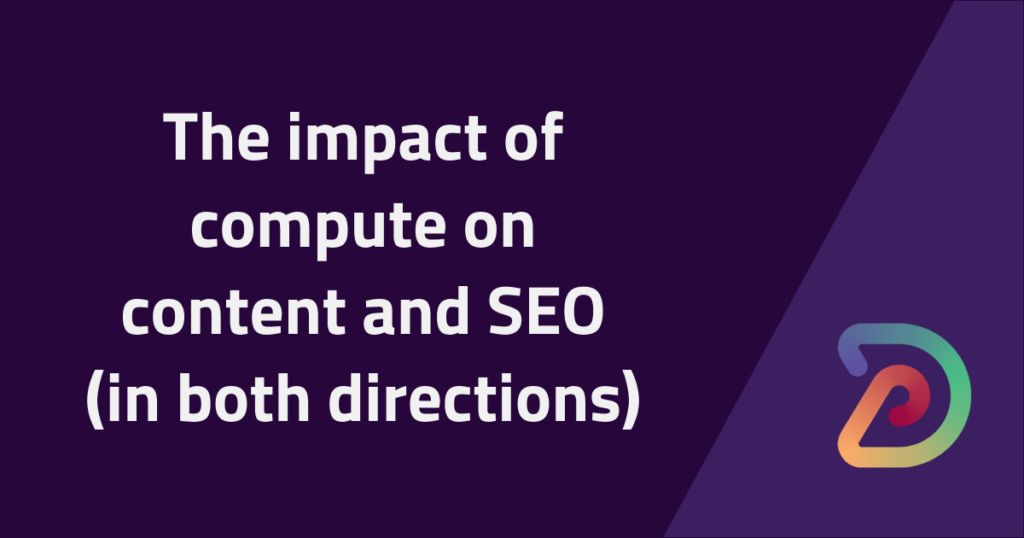A number of articles and discussions can be viewed more generally from the angle of how the budgeting and allocation for computing in the age of AI is going to affect website owners and content creators.
I’m going to take a look at the following stories and tie them together in some ways with the aim of seeing the larger trends at play:
- Google’s Search Liaison team again tweeted a link to their guidelines on creating helpful, reliable, people-first content. I’m going to discuss what this means for AI content because it’s not going away.
- Google’s invitation to community standards and organization for ongoing development of open standards and monitoring adherence to their own AI principles
- The Sitemap Ping endpoint going away
- Google’s new syndication guidelines
- In SEO forums and Slack channels (as well as in my own experience), there are frequent occurrences of Googlebots not indexing new site content nearly as quickly as it used to.
- Google confirms indexing issue for Google News
Long story short, I think what we’re looking at is Google looking at where they want to allocate their compute resources. Sounds crazy, I know. Google possesses infinite computing power and has a literal money machine that can print more data centers at will. It’s almost true.
(The very existence of the crawl budget should be a clue that the realities of budget allocation still exist. A whole other discussion can be had on the correlation in the growth in companies like Google and the money supply.)
So, yes, Google has seemingly infinite computing resources by today’s standards, but the standards, for everybody, are changing quickly. With the rise of AI and the explosion in data assets of all forms, the requirements for both computing power and storage over the next few decades are going to hit levels that most today would have trouble imagining. We’ll dig into the details on this in a later post.
So, this is the cost / allocation side of what I call “the impact of compute.” (IoC)
The other side to the IoC is the fact that the scalability and velocity of content creation is now effectively a commodity. This radically alters (whether we like it or not) the budgeting around a massive array of content production workflows. We are going to see new levels of content (text, visual, and more) and, despite many valid concerns, a lot of it is going to be very high quality. And it will keep getting better.
So we are going to see a huge increase in compute resources dedicated to both content creation and also computing on all of this new content. Google is in the middle of all of this. As a result, our theory is that they are paying close attention to this and providing hints to website owners that this new reality is in play.
What does this mean for SEO?
As always, in our world, the more things change, the more they stay the same.
Go re-read Google’s recommendations for creating quality content.
It is in the spirit of (or even exactly) what they have been saying for the last 20 years:
- write for humans
- create content that adds value
- demonstrate topical authority
- adhere to good UX for users
Our industry still spends so much time thinking about what search engines need when Google (and others) have made it abundantly clear that if you focus on what humans need, you kill two birds with one stone.
The reason this is so challenging is because so few teams really understand the basics of good content outlines and also how browsers work. Focus on these and you help your own site / digital products as well as help Google save compute cycles on your side. And Google is making it clear that if you help them save compute cycles, they will reward you with better indexing and potentially rankings.
On the positive side of the IoC, this is absolutely the time to build a coherent AI and content strategy. We will be writing more about this soon. AI content is not going away but humans can and should be involved.
It always has been and always will be about human attention.


